Jaws is a 1975 American thriller film directed by Steven Spielberg and based on Peter Benchley's 1974 novel of the same name. In it, a giant man-eating great white shark attacks beachgoers on Amity Island, a fictional New England summer resort town, prompting police chief Martin Brody (Roy Scheider) to hunt it with the help of a marine biologist (Richard Dreyfuss) and a professional shark hunter (Robert Shaw). Murray Hamilton plays the mayor, and Lorraine Gary portrays Brody's wife. The screenplay is credited to Benchley, who wrote the first drafts, and actor-writer Carl Gottlieb, who rewrote the script during principal photography.
| Jaws | |
|---|---|
Theatrical release poster by Roger Kastel | |
| Directed by | Steven Spielberg |
| Produced by |
|
| Screenplay by |
|
| Based on | Jaws by Peter Benchley |
| Starring |
|
| Music by | John Williams |
| Cinematography | Bill Butler |
| Edited by | Verna Fields |
Production company |
|
| Distributed by | Universal Pictures |
Release date |
|
Running time | 124 minutes |
| Country | United States |
| Language | English |
| Budget | $9 million |
| Box office | $470.7 million |
Shot mostly on location on Martha's Vineyard in Massachusetts, Jaws had a troubled production, going over budget and past schedule. As the art department's mechanical sharks often malfunctioned, Spielberg decided to mostly suggest the shark's presence, employing an ominous and minimalistic theme created by composer John Williams to indicate its impending appearances. Spielberg and others have compared this suggestive approach to that of thriller director Alfred Hitchcock. Universal Pictures gave the film what was then an exceptionally wide release for a major studio picture, on over 450 screens, accompanied by an extensive marketing campaign with a heavy emphasis on television spots and tie-in merchandise.
Considered one of the greatest films ever made, Jaws was the prototypical summer blockbuster, with its release regarded as a watershed moment in motion picture history and won several awards for its music and editing. It became the highest-grossing film of all time until the release of Star Wars in 1977. Both films were pivotal in establishing the modern Hollywood business model, which revolves around high box-office returns from action and adventure pictures with simple high-concept premises released during the summer in thousands of theaters and heavily advertised. It was followed by three sequels, all without Spielberg or Benchley, and many imitative thrillers. In 2001, it was selected by the Library of Congress for preservation in the United States National Film Registry, being deemed "culturally, historically, or aesthetically significant".
Screenplay
During a beach party at dusk on Amity Island, New England, a young woman, Chrissie Watkins, goes skinny dipping in the ocean. While treading water, she is violently pulled under. The next day, her partial remains are found on shore. The medical examiner's ruling that the death was due to a shark attack leads police chief Martin Brody to close the beaches. Mayor Larry Vaughn overrules him, fearing that the town's summer economy will be ruined. The coroner now concurs with the mayor's theory that Chrissie was killed in a boating accident. Brody reluctantly accepts their conclusion until another fatal shark attack occurs shortly thereafter. A bounty is placed on the shark, prompting an amateur shark-hunting frenzy. Local professional shark hunter Quint offers his services for $10,000. Meanwhile, consulting oceanographer Matt Hooper examines Chrissie's remains, and confirms her death was caused by a shark—an unusually large one.
When local fishermen catch a tiger shark, the mayor proclaims the beaches safe. Hooper disputes that it is the same predator, confirming this after no human remains are found inside it. Hooper and Brody find a half-sunken vessel while searching the night waters in Hooper's boat. Underwater, Hooper retrieves a sizable great white shark's tooth embedded in the submerged hull. He drops it in fright after encountering a partial corpse. Vaughn discounts Brody and Hooper's claims that a huge great white shark is responsible for the deaths, and refuses to close the beaches, allowing only added safety precautions. On the Fourth of July weekend, tourists pack the beaches. Following a juvenile prank in which the presence of a shark is simulated, the real shark enters a nearby estuary, killing a boater and causing Brody's oldest son, Michael, to go into shock. Brody then convinces Vaughn to hire Quint.
Quint, Brody, and Hooper set out on Quint's boat, the Orca, to hunt the shark. While Brody lays down a chum line, Quint waits for an opportunity to hook the shark. Without warning, it appears behind the boat. Quint, estimating its length at 25 feet (7.6 m) and weight at 3 tons, harpoons it with a line attached to a flotation barrel, but the shark pulls the barrel underwater and disappears.
At nightfall, Quint and Hooper drunkenly exchange stories about their assorted scars and Quint reveals that he survived the USS Indianapolis. The shark returns unexpectedly, ramming the boat's hull, and disabling the power. The men work through the night, repairing the engine. In the morning, Brody attempts to call the Coast Guard, but Quint, who has become obsessed with killing the shark without outside assistance, smashes the radio. After a long chase, Quint harpoons another barrel into the shark. The line is tied to the stern cleats, but the shark drags the boat backward, swamping the deck and flooding the engine compartment. Quint prepares to sever the line to prevent the transom from being pulled out but the cleats break off, keeping the barrels attached to the shark. Quint heads toward shore to draw the shark into shallower waters, but he intentionally pushes the damaged engine past the safety limits and the overtaxed engine fails.
With the Orca slowly sinking, the trio attempt a riskier approach. Hooper puts on scuba gear and enters the water in a shark-proof cage, intending to lethally inject the shark with strychnine, using a hypodermic spear. The shark demolishes the cage before Hooper can inject it, but he manages to escape to the seabed. The shark then attacks the boat directly and devours Quint. Trapped on the sinking vessel, Brody stuffs a pressurized scuba tank into the shark's mouth, and, climbing the crow's nest, shoots the tank with a rifle. The resulting explosion obliterates the shark. Hooper surfaces, and he and Brody paddle back to Amity Island clinging to the remaining barrels.
Development
Richard D. Zanuck and David Brown, producers at Universal Pictures, independently heard about Peter Benchley's novel Jaws. Brown came across it in the literature section of lifestyle magazine Cosmopolitan, then edited by his wife, Helen Gurley Brown. A small card written by the magazine's book editor gave a detailed description of the plot, concluding with the comment "might make a good movie". The producers each read the book over the course of a single night and agreed the next morning that it was "the most exciting thing that they had ever read" and that they wanted to produce a film version, although they were unsure how it would be accomplished. They purchased the movie rights in 1973, before the book's publication, for approximately $175,000 (equivalent to $0.96 million in 2017). Brown claimed that had they read the book twice, they would never have made the film because they would have realized how difficult it would be to execute certain sequences.
To direct, Zanuck and Brown first considered veteran filmmaker John Sturges—whose résumé included another maritime adventure, The Old Man and the Sea—before offering the job to Dick Richards, whose directorial debut, The Culpepper Cattle Co. had come out the previous year. However, they grew irritated by Richards's habit of describing the shark as a whale and soon dropped him from the project. Meanwhile, Steven Spielberg very much wanted the job. The 26-year-old had just directed his first theatrical film, The Sugarland Express, for Zanuck and Brown. At the end of a meeting in their office, Spielberg noticed their copy of the still-unpublished Benchley novel, and after reading it was immediately captivated. He later observed that it was similar to his 1971 television film Duel in that both deal with "these leviathans targeting everymen". After Richards's departure, the producers signed Spielberg to direct in June 1973, before the release of The Sugarland Express.
Before production began, however, Spielberg grew reluctant to continue with Jaws, in fear of becoming typecast as the "truck and shark director". He wanted to move over to 20th Century Fox's Lucky Lady instead, but Universal exercised its right under its contract with the director to veto his departure. Brown helped convince Spielberg to stick with the project, saying that "after , you can make all the films you want". The film was given an estimated budget of $3.5 million and a shooting schedule of 55 days. Principal photography was set to begin in May 1974. Universal wanted the shoot to finish by the end of June, when the major studios' contract with the Screen Actors Guild was due to expire, to avoid any disruptions due to a potential strike.
Writing
For the screen adaptation, Spielberg wanted to stay with the novel's basic plot, but discarded many of Benchley's subplots. He declared that his favorite part of the book was the shark hunt on the last 120 pages, and told Zanuck when he accepted the job, "I'd like to do the picture if I could change the first two acts and base the first two acts on original screenplay material, and then be very true to the book for the last third." When the producers purchased the rights to his novel, they promised Benchley that he could write the first draft of the screenplay. The intent was to make sure a script could be done despite an impending threat of a Writer's Guild strike, given Benchley was not unionized. Overall, he wrote three drafts before the script was turned over to other writers; delivering his final version to Spielberg, he declared, "I'm written out on this, and that's the best I can do." Benchley would later describe his contribution to the finished film as "the storyline and the ocean stuff – basically, the mechanics", given he "didn't know how to put the character texture into a screenplay." One of his changes was to remove the novel's adulterous affair between Ellen Brody and Matt Hooper, at the suggestion of Spielberg, who feared it would compromise the camaraderie between the men on the Orca. During the film's production, Benchley agreed to return and play a small onscreen role as a reporter.
Spielberg, who felt that the characters in Benchley's script were still unlikable, invited the young screenwriter John Byrum to do a rewrite, but he declined the offer.Columbo creators William Link and Richard Levinson also declined Spielberg's invitation. Tony and Pulitzer Prize-winning playwright Howard Sackler was in Los Angeles when the filmmakers began looking for another writer and offered to do an uncredited rewrite; since the producers and Spielberg were unhappy with Benchley's drafts, they quickly agreed. At the suggestion of Spielberg, Brody's characterization made him afraid of water, "coming from an urban jungle to find something more terrifying off this placid island near Massachusetts."
Spielberg wanted "some levity" in Jaws, humor that would avoid making it "a dark sea hunt", so he turned to his friend Carl Gottlieb, a comedy writer-actor then working on the sitcom The Odd Couple. Spielberg sent Gottlieb a script, asking what the writer would change and if there was a role he would be interested in performing. Gottlieb sent Spielberg three pages of notes, and picked the part of Meadows, the politically connected editor of the local paper. He passed the audition one week before Spielberg took him to meet the producers regarding a writing job.
While the deal was initially for a "one-week dialogue polish", Gottlieb eventually became the primary screenwriter, rewriting the entire script during a nine-week period of principal photography. The script for each scene was typically finished the night before it was shot, after Gottlieb had dinner with Spielberg and members of the cast and crew to decide what would go into the film. Many pieces of dialogue originated from the actors' improvisations during these meals; a few were created on set, most notably Roy Scheider's ad-lib of the line "You're gonna need a bigger boat." John Milius contributed dialogue polishes, and Sugarland Express writers Matthew Robb
Watch movie Jaws Film online on Amazon
Watch movie Jaws Film online
Watch The Movie On PrimeDr Vidya Full HD Movie Download

Pyar Ka Rishta Full HD Movie Download
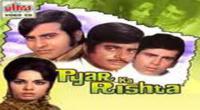
Duet Full HD Movie Download

Kabhi Socha Bhi Na Tha Full HD Movie Download

Chunauti Full HD Movie Download
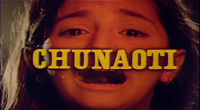
Thokar (1974) Full HD Movie Download
.jpg)
Khazana (1987) Full HD Movie Download
.jpg)
April Fool (1964) Full HD Movie Download
.jpg)
404 Full HD Movie Download

Chanda Full HD Movie Download
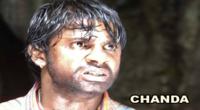
Hoo Full HD Movie Download

Raaj-The Showman Full HD Movie Download

Gunehgar Kaun Full HD Movie Download
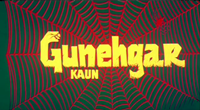
Aakhari Khat Full HD Movie Download

Rush Hour 3 Full HD Movie Download
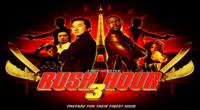
Aadavallu Aligithe Full HD Movie Download

Shankaravam Full HD Movie Download
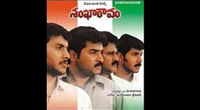
Kula Gothralu Full HD Movie Download
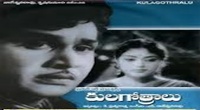
Dongalaku Saval Full HD Movie Download
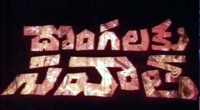
Anuraag Full HD Movie Download

Luv Ka The End Full HD Movie Download

Download latest Movie from bollywood
- 1> baaghi 3
- 2> THE SKY IS PINK MOVIE FULL STORY AND REVIEW
- 3> Luka Chuppi
- 4> TO ALL THE BOYS I’VE LOVED BEFORE
- 5> Kabir Singh
- 6> Street Dancer 3D
- 7> Simmba
- 8> Gone Girl
- 9> The Girl Who Lived
- 10> Ludo
- 11> DILWALE DULHANIA LE JAYENGE
- 12> GUILTY
- 13> The Godfather
- 14> Adventures of Rusty
- 15> Sooryavanshi
- 16> Satyameva Jayate 2
- 17> Thappad
- 18> Bhool Bhulaiyaa 2
- 19> KGFChapter 2
- 20> Mardaani 2
- 21> Pinjar
- 22> Shivaji maharaj
- 23> Ek Villian 2
- 24> Hungama 2
- 25> Divergent
- 26> Mumbai Saga
- 27> The Internship
- 28> HIT (telugu)
- 29> Panga
- 30> The perfect date
- 31> 16 December
- 32> Gopala Gopala (Telugu)
- 33> Brahmastra
- 34> Gangubai Kathiawadi
- 35> Manmadhudu
- 36> Nenu local
- 37> Mahanati
- 38> Shatamanam bavathi
- 39> Lagaan
- 40> After
- 41> MOM
- 42> Shamshera
- 43> Raguvaran BTech
- 44> Khakee
- 45> The villain
- 46> OM
- 47> Mr. perfect
- 48> Bueatifull mind
- 49> Hichki
- 50> Gabbar Singh
- 51> Jogi
- 52> Before Sunrise
- 53> Before Sunset
- 54> Before Midnight
- 55> The Big Bull
- 56> Top Gun: Maverick
- 57> The Purge
- 58> The Sky is Pink
- 59> Laxmmi Bomb
- 60> Sadak 2
- 61> Sufna
- 62> Prithviraj
- 63> PK
- 64> Coolie No 1(2020)
- 65> Black Widow
- 66> Dear Zindagi
- 67> Dil Bechara
- 68> PHIR HERA PHERI
- 69> WAR
- 70> Dostana
- 71> RRR: Roudram Ranam Rudhiram
- 72> Maidan
- 73> Dabbang 3
- 74> Chhalaang
- 75> life as we know it
- 76> SherShaah
- 77> Sandeep Aur Pinky Faraar
- 78> Event Horizon
- 79> 83
- 80> Radhe: Your Most Wanted Bhai
- 81> Gunjan Saxena: The Kargil Girl
- 82> Mr India
- 83> Vivah
- 84> Anokha Bandhan
- 85> Ghost
- 86> Bhoot: Part One - The Haunted Ship
- 87> Haseen Dilruba
- 88> Laal Singh Chaddha
- 89> Qismat
- 90> Rajput
- 91> Drive
- 92> Dil Chahta Hai
- 93> Dil Ki Baazi
- 94> Dil Ka Rishta
- 95> Teesri Manzil
- 96> Dil
- 97> Love Aaj Kal
- 98> Khaali Peeli
- 99> Bunty Aur Babli 2
- 100> Atrangi Re
- 101> Gulabo Sitabo
- 102> Jodi
- 103> Suraj Pe Mangal Bhari
- 104> Deewana
- 105> Attack
- 106> Sardar Udham Singh
- 107> Toofan
- 108> THE LOVEBIRDS
- 109> Jersey
- 110> Ginny Weds Sunny
- 111> Thalaivi
- 112> Shiddat
- 113> Angels vs Zombies
- 114> Koi Mil Gya
- 115> Thank God
- 116> Bhuj: The Pride of India
- 117> Hum Aapke Hain Kaun
- 118> The Platform
- 119> Bird Box
- 120> Roohi Afzana
- 121> Torbaaz
- 122> Nikamma
- 123> World War Z
- 124> Extraction
- 125> Train to Busan
- 126> Life of Pi
- 127> SHAADI MEIN JROOR AANA
- 128> Himmat Aur Mehnat
- 129> To All The Boys: P.S. I Still Love You
- 130> Mimi
- 131> Good Newwz
- 132> Shubh Mangal Zyada Saavdhan
- 133> Raabta
- 134> Harry Potter and the Philosopher's Stone
- 135> Harry Potter and the Chamber of Secrets
- 136> Chhapaak
- 137> War of the Worlds
- 138> Harry Potter and the Prisoner of Azkaban
- 139> Harry Potter and the Goblet of Fire
- 140> MURDER MYSTERY
- 141> Shakuntala Devi
- 142> Bachchan Pandey
- 143> Jayeshbhai Jordar
- 144> Sheer Qorma
- 145> Saina
- 146> 'O' Pushpa I hate tears
- 147> Kedarnath
- 148> MS Dhoni The Untold Story
- 149> Chhichhore
- 150> Badhaai Ho
- 151> Unstoppable
- 152> Oz the Great And Powerful
- 153> The Girl on the Train
- 154> Haathi Mere Saathi 2020
- 155> The Conjuring: The Devil Made Me Do It
- 156> Gandhi Se Pehle Gandhi
- 157> The Song of Scorpions
- 158> Srimanthudu
- 159> Hello Guru Prema Kosame
- 160> Beauty and The Beast
- 161> Black Panther
- 162> Charlie and the Chocolate Factory
- 163> Bole Chudiyan
- 164> Fidaa
- 165> Duvvada Jagannadham
- 166> Bruce Lee: The Fighter
- 167> Hyper
- 168> Yaara
- 169> Red (2020)
- 170> Shivam
- 171> That Is Mahalakshmi
- 172> Nishabdham
- 173> Aashram 2020 web series
- 174> Laxmii
- 175> Mismatched
- 176> STUDENT OF THE YEAR 2
- 177> NAIL POLISH
- 178> Ramprasad Ki Tehrvi
- 179> KAAGAZ
- 180> 12 o Clock
- 181> The Power
- 182> bolo hau
- 183> Tribhanga
- 184> JAMUN
- 185> Madam Chief Minister
- 186> Maasaab
- 187> Aadhaar
- 188> Tanhaji
- 189> Bhaagi 3
- 190> Bhootnath
- 191> MALANG
- 192> Jai Mummy Di
- 193> Haathi Mere Saathi 2021
- 194> Shakeela
- 195> Unpaused
- 196> Annayya
- 197> Vamsoddharakudu
- 198> Mrugaraju
- 199> Narasimha Naidu
- 200> Sankranti
- 201> Manasu Maata Vinadhu
- 202> Anjaane
- 203> Apaharan
- 204> Bachke Rehna Re Baba
- 205> Bewafaa
- 206> Roohi
- 207> Radhe
- 208> Zindagi Khoobsoorat Hai
- 209> Yeh Mohabbat Hai
- 210> Yeh Kya Ho Raha Hai?
- 211> The Tomorrow War
- 212> DehradunDiary
- 213> Meri Shaadi Karaoo
- 214> Matruu Ki Bijlee Ka Mandola
- 215> No One Killed Jesica
- 216> Aag Ka Goola
- 217> Eight Million Dollars
- 218> Three Hundred
- 219> Cats and Dog
- 220> Decoy
- 221> Gold Rush
- 222> You Have Got Mail
- 223> Final Destination three
- 224> Tofan
- 225> Jungle
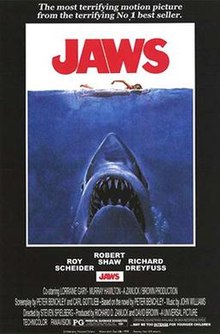 Story of movie Jaws Film :
Story of movie Jaws Film : 